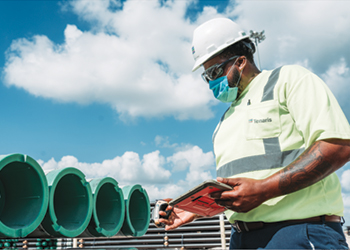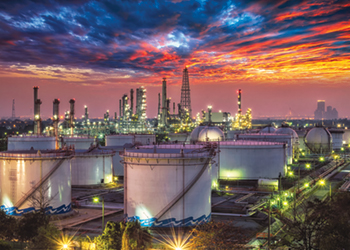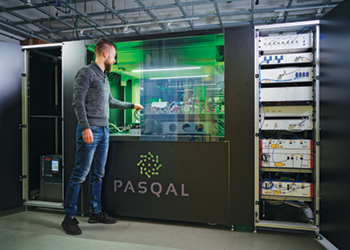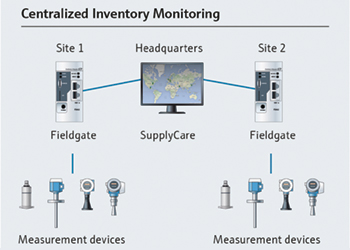
 Tienhaara ... creating value through digitalisation
Tienhaara ... creating value through digitalisation
A single technology or solution will not be able to solve everything, and only by combining useful sources that all carry value, is reinventing oil and gas production entirely possible, Mika Tienhaara, Rocsole CEO, tells OGN
The current energy prices are perhaps giving oil and gas operators another type of headache – with the record level of free cash flow – how and what are we going to spend it on, or should we just instead continue to produce?
This deserves some serious consideration. To operate with the status quo is not feasible; there is an urgent need to transform or even reinvent the operations.
The Environmental, Social, and Governance (ESG) targets need to be part of the corporate business model and goals.
The energy transition requires everyone to make their efforts to reduce the carbon footprint and build road maps for deep decarbonisation. Ambition needs to become action.
"In our era of electrification and digitalisation, also traditional industries with an extensive portfolio of assets and infrastructure. We have learned that only data is not sufficient; it needs to be valuable data that generates insights to solve problems and create value," says Mika Tienhaara, CEO, Rocsole.
Are we there yet? Let’s look at some facts relating to the oil and gas and processing industries:
Research shows that 75 per cent of maintenance for US Gulf Coast processing industries is unplanned, mainly due to a lack of insights and run-to-failure operations1.
For 134 operational US refineries, the number of unplanned shutdowns yearly emits pollution for 2,000 operational years.
For processing facilities, the leading root cause for gravity separator failures is faulty level devices.
 |
Rocsole employees performing pressure tests |
The incumbent solutions do not work with emulsions, solids, scale, and deposits in the operational environment.
With more than 60 per cent of global operating fields having infrastructure older than 20 years, it should indicate that most operations have to handle these types of harsh conditions as the usual modus operandi.
How could digitalisation enable to solve these types of issues?
One example is the academia spin-off Rocsole, a company that has industrialised electrical tomography by doing a technology transfer from the healthcare sector and making the technology robust for harsh and dirty operational conditions. Technology needs to serve a purpose, creating value and solving real-world problems.
Obviously, the primary operational issues for oil and gas operators lacking critical insights causing the high number of unexpected shutdowns, with a loss of revenue, high costs, and additional emissions, is one of the key targets to solve.
The unique electrical tomography solutions for gravity separators allow for real-time data of levels and interfaces, enabling stable operations.
But the digitalisation can also deliver added value.
One of the biggest challenges is to get operational data for emulsion layers. Manual sampling is the way to go typically, but it is possible to get real-time data for analytics with electrical tomography.
Emulsions do cause many operational issues that can lead to bad product quality and downstream additional problems.
Sand production is also harmful to separators, as this can cement inside the vessel, reduce available volume for gravity separation and, cause clogging malfunction and can also lead to erosion.
An automated sand management system can be installed, but a reliable solution to monitor the sand build-up is required, for which electrical tomography devices can be used.
Enabling these various critical insights, more comprehensive optimisation models can be created for predictive maintenance purposes.
A single technology or solution will not be able to solve everything. Still, by combining useful sources that all carry value, is reinventing oil and gas production is entirely possible.
Operators, OEM equipment manufacturers, system integrators, and startup companies need to collaborate to make an impact.
Digitalisation is an integral part of the road map toward low-carbon and carbon-neutral production.
The reinvention is not only a way to decarbonise – with such efforts that also build highly digitalised assets which make corporates more competitive, lies a fantastic business opportunity – a single player can achieve up to $500 billion annual upside. Get on the train!














































































